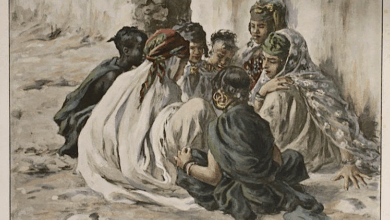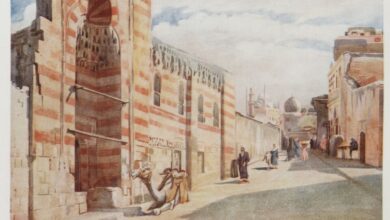Six years after his death, scholar Edward Said is still remembered for his influential theories on imagery construction between the East and West. His chef d’oeuvre Orientalism remains a prevailing theoretical paradigm not only for academics, but also for journalists, artists and social workers.
A critique of Euro-centric understanding of the Arab and Islamic world, Orientalism (1977), exposes romanticized images and representation of weaknesses of the East in Western political doctrine. This understanding is usually an implicit justification of colonialism in its different forms. As a doctrine, Orientalism has been functionalized through political and economic theory, literature, history, linguistics and other platforms.
In 1981, Syrian critic and poet Kamal Abu Dib offered the first Arabic translation for Orientalism, a critical effort for a non-English speaking audience thirsty to access to Said's scholarship. Abu Dib added a subtitle to the book’s title which reads Knowledge, Power and Construction. Then, 30 years after the appearance of Orientalism and three years after the death of Said, professor of English literature in Cairo University, Mohammad Enany, translated the work again. He subtitled it Western Concepts on the East.
For intellectuals concerned with the scholarship of Said in the region, both translations offered different levels of commitment to the author’s theory. While offering channels of access to Said’s work in Arabic, their translations bore certain independent conceptual connotations.
In his translation, Abu Dib adopts a literal approach in an attempt to preserve the essence of Said’s work. In his 19-page long translator’s note, he writes, “the [translation] challenges lie in Orientalism as much as it lies in the Arabic language itself as a language of expression of the problems associated with contemporary thought and civilization. I am not the first one to decide or to be confronted with this challenge and I won’t be the last one. This challenge does not mean to insult the language, but it is a descriptive judgment that indicates a certain phase in the development of contemporary Arab life and culture.”
This introduction and the translation that followed generated criticism. For Mona Ibrahim, professor in Cairo University’s English department, the context of the translation matters. “It’s a post-colonial context,” she tells Al-Masry Al-Youm. “When I am translating from a language of the Third world to a language of the First world, it doesn’t have to very fluent,” she says, adding that the Western reader would need to go the extra mile of trying to understand the cultural context of the text he/she is reading.
“But in the opposite case, what do I do? Do I westernize the Arabic because it is an inferior language?” Ibrahim questions rhetorically. For she, reading Abu Dib’s translation could not be an alternative to reading Said’s original text for it was difficult to follow, given that he translated the language structure rather than just the content.
“The most important drawback of Abu Dib’s translation is its oblivion to the relations of power in the modern world which leads to the internalization of Anglo-American strategies of cultural domination of the Third World cultures," Ibrahim writes at the end of a paper presented at the Higher Culture Institute in Cairo. "What I find ironical is that this is done to Said’s Orientalism, a book about cultural domination in general, and cultural domination of Arabs in particular.” Through the course of the paper, she dissects deficiencies in Abu Dib’s attempt at providing a transparent translation.
Meanwhile, Enany’s more recent translation adopts a less literal approach. In his translation note, he explains his drive to work on Orientalism. For him, Said is one of very few writers who addressed the West using its language and its scientific approach to uncover what lies beneath culture, namely political doctrine. In the process, he prominently contributed to the field of intellectual criticism. According to him, this work has to reach the Arab reader who needs to find it accessible and easy to read, which entails an interpretation work by the translator. In his translation’s introduction, Enany writes, “My mission in translating Orientalism consists of two matters; the first is to clearly relay the ideas of Edward Said, no matter how difficult it is to rebuild some of the English language structures to be accommodated by the Arabic language. The second is preservation of the special traits in Edward Said’s style in the context of contemporary fusha…”
Amr Abdul Rahman, PhD candidate in political science in Essex University, the UK, first accessed Orientalism through Abu Dib’s translation. After he encountered difficulties in understanding the text, he consulted Enany’s work. “The main problem with Abu Dib’s translation is that he was moved by a certain ambition to create a new language. He thought that Edward Said’s work is so special that it cannot be translated into regular Arabic. But the result was horrible,” he says. According to him, this ambition is common among translators who work in the realm of post-modernist and post-structuralist texts.




